The Art of Change (Spring 2019)
Home
>
2019
>
The Art of Change (Spring 2019)
Whether it’s a bank trying to get consumers to switch to its products or a CFO introducing more diversity on her team, for leaders everywhere, behaviour-change challenges abound. The problem is, most people resist and fear change. What is a leader to do?
Preview This Issue
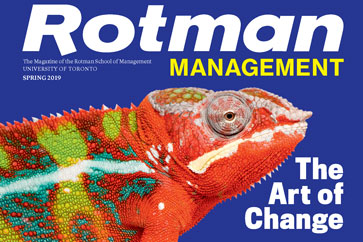
Purchase This Issue
Due to their timeless themes, Rotman Management issues remain relevant long after publication.
Buy a Digital Copy:
Zinio | Apple Store | Google Play

Editor's Letter
AT ITS CORE, EVERY ORGANIZATION is in the same business: behaviour change. Whether it’s a bank encouraging consumers to switch to their product, a government agency trying to get citizens to....
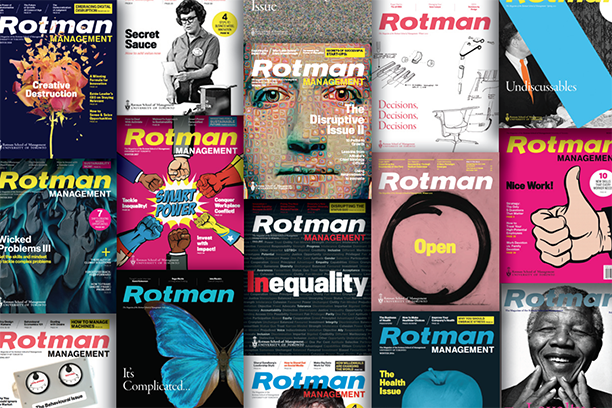
Subscribe Today
Rotman Management magazine is your destination for exclusive thought leader interviews, breakthrough research from leading academics, and innovative new ideas from top management thinkers.
Feature Articles From this Issue
Feature articles from Rotman Management magazine can be purchased individually as PDF documents.
Click on any title to proceed to the purchase page at hbr.org.
 |
(FREE) Thought Leader Interview: Sarah Kaplan
by Karen Christensen
The founding director of the Institute for Gender and the Economy explains how to approach the stakeholder trade-offs inherent in every business model.
|
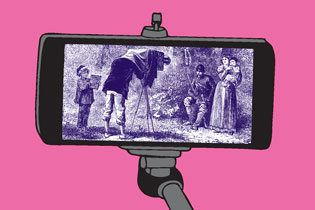 |
(FREE) The Age of Emergent Change
by Beth Comstock
Futurists predict that we will experience 20,000 years of progress in the course of the 21st century. Are you ready for it?
|
 |
(FREE) Leadership Forum: Behavioural Approaches to Diversity
Compiled by Karen Christensen
Two of the Rotman School’s leading research institutes — the Institute for Gender and the Economy (GATE) and Behavioural Economics in Action at Rotman (BEAR) — recently hosted the world’s leading thinkers on diversity and inclusion. Following are some highlights from Behavioural Approaches to Diversity — aka the BAD Conference.
|
 |
(FREE) The Future of AI: Proceed With Caution
An interview with Amy Webb by Karen Christensen
An NYU professor warns that Silicon Valley might be building AI to make decisions without inclusive human values.
|
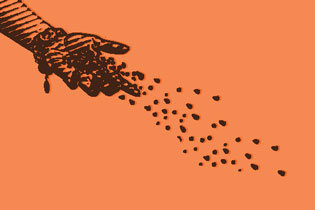
|
(FREE) The Seeds of Change: How Companies are Moving the Needle on Gender Equality
by Karen Christensen
Bank of America and Walmart are just two of a growing number of companies taking decisive steps towards eradicating gender inequality.
|

|
Harnessing Behavioural Insights: A Playbook for Organizations
by Bing Feng, Jima Oyunsuren, Mykyta Tymko, Melanie Kim and Dilip Soman
While they go about things in very different ways, at their core, every organization is actually in the same business: behavioural change. Whether it is a for-profit firm encouraging consumers to switch to their product; a government agency trying to get citizens to pay taxes on time; or a health agency interested in improving the consumption of medication, behaviour-change challenges abound. As a result, some of the smartest organizations out there are now embedding behavioural insights into their everyday processes. The authors describe the four main ways that behavioral insights (BI) can add value to any organization, as well as four approaches that an enterprise can take to embed BI in its work.
|
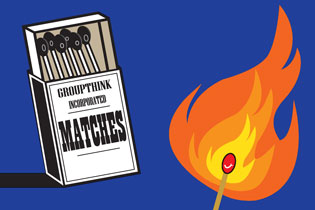
|
In Defense of Troublemakers: The Power of Dissent
by Charlan Jeanne Nemeth
Consensus in workplace groups, while comforting and harmonious, often leads to bad decisions. In hopes of stimulating some form of divergent thinking, many organizations have embraced the ‘devil’s advocate’ approach to encourage teams to evaluate risks and benefits with equal vigor. Now for the bad news: It doesn’t work. The author describes the weaknesses of the devil’s advocate approach and argues that another tool — authentic dissent — is far more effective. Authentic dissent is not about being rude or disrespectful: It is about boldly speaking up when you have a position that you believe to be true. Daring to dissent takes courage, she says; but this courage, when summoned, is often contagious.
|
 |
Changing Behaviour for Good
by Angela Duckworth and Katherine Milkman
Our life outcomes are powerfully determined by seemingly trivial, repeated acts. Our health, for example, depends on thousands of daily choices—to eat well and exercise regularly, to avoid smoking, and to take medications as prescribed. Yet 40 per cent of premature deaths each year result from suboptimal behavior. The authors argue that the most promising avenue for making behaviour change ‘stick’ is to take proactive steps to change our habits. They provide advice for achieving this by ‘targeting the situation’ and ‘shifting cognitions’. In the end, they show that there is an enormous untapped opportunity at hand to enable sustained improvements in daily decisions on a collective level.
|
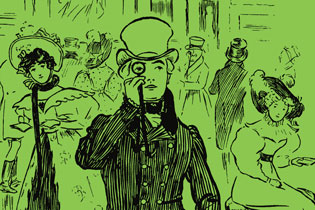 |
The Origins of the Gender Gap
by Ran Duchin, Mike Simutin and Denis Sosyura
Many attempts to narrow the gender gap—ranging from greater disclosure to governance rules—assume that it reflects the personal bias of senior decision makers, in particular CEOs. However, this premise has been difficult to test; until now. The authors set out to compare two things: the personal backgrounds of CEOs and their allocation of capital budgets to male and female division managers at U.S. conglomerates. The present their findings, which indicate that a CEO’s formative years—including factors like whether they attended an all-boys school and whether their mother worked or not—have a significant impact on their later corporate behavior.
|
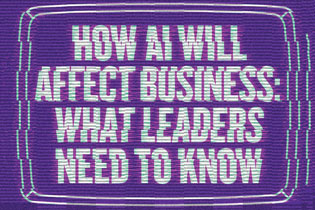 |
How AI Will Affect Business: What Leaders Need to Know
by Ajay Agrawal, Joshua Gans, and Avi Goldfarb
Few would argue that artificial intelligence will have widespread implications for business and society. The authors argue that business leaders should focus on the effects in three key areas: jobs, inequality and competition. They outline both the pessimistic and optimistic views of AI’s effects and provide their own views with respect to the three key categories—AI and jobs, AI and inequality and AI and competition. Among other things, they argue that the impact of AI will not affect all people and all firms equally, and that leaders must carefully consider their decisions in this arena, as they could have long-lasting effects on society.
|
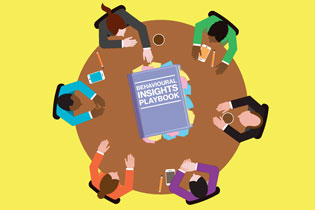 |
Using Behavioural Science to Improve Decisions
by Michael Hallsworth, Mark Egan, Jill Rutter and Julian McCrae
A growing number of organizations—particularly in the public sector—are embracing behavioral insights to design and enhance their products, policies and services. The challenge for these organizations is this: Their leaders and workers are human too, and are therefore influenced by the same heuristics and biases that they are attempting to address in others. The authors—who work for the world renowned Behavioral Insights Team—introduce three core activities of policymaking and strategy-making in any industry: noticing, deliberating and executing. In the article they focus on the first two stages—noticing and deliberating—and present the most important behavioral insights within each category—including confirmation bias and framing effects—providing tools to mitigate each.
|

|
Reframing Innovation: Integrating Behavioural Science and Design
by Sarah Reid and Ruth Schmidt
The authors argue that Behavioral Science can and should continue to make important contributions through nudges and its other proven methods; but they believe it can contribute at an even greater scale by turning outwards to partner with other disciplines—in particular, with the field of design. They introduce their integrative model, which hinges on the notions of where to play and how to win—first introduced by Roger Martin and A.G. Lafely in their book, Playing to Win. In the end, they show that by partnering with design and framing behavioral science as a speculative tool in addition to an evidence-based one, we can collectively better envision the new, in addition to testing the known.
|

|
The Fearless Organization
An interview with Amy Edmondson by Karen Christensen
In a wide-ranging interview, Harvard Business School Professor Amy Edmondson argues that in every organization, moments of silence are leading to countless lost opportunities and errors—some of them life threatening. She discusses her widely embraced concept of ‘psychological safety’ and argues that leaders must set the stage for it and lead their teams with ‘situational humility’ and ‘humble listening’. In the end, she makes it clear that voice has become mission critical for every modern organization.
|